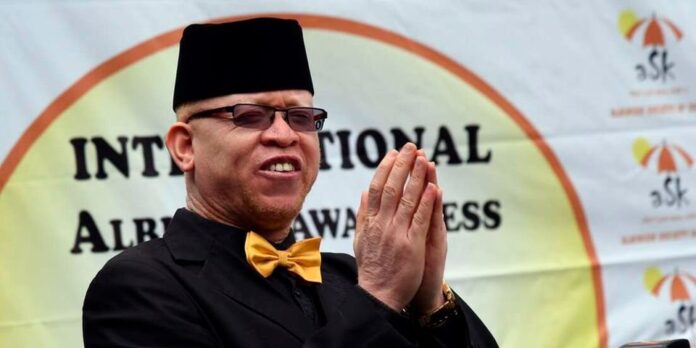
By Daily Nation
Kenyans living with albinism have complained about disregard for their welfare and increased attacks against them.
Albinism Society of Kenya’s Programmes Manager Daniel Omeno said persons in the country who are living with albinism have had little to smile about.
Mr Omeno said they continue to put up with unemployment, domestic violence and premature deaths due to skin cancer, in addition to experiencing stigmatisation, rejection and discrimination.
He added that they have suffered increased disregard for their rights, downsizing of budgetary allocations due to them and attacks from a section of political leaders in the country.
This, he said, risks reversing the few gains the organisation has made, including attaining acceptance and social inclusion to some degree, in its 15 years of existence.
“From being perceived as the agents of the coronavirus to losing jobs and no longer being able to afford basic needs, the quality of life lived by persons with albinism has been deteriorating over the period,” Mr Omeno said as International Albinism Awareness Day was marked on Sunday.
He said the national government reduced its allocations to the National Council for Persons with Disabilities in the current financial year, without public participation or consultation with stakeholders.
This affected them as the national albinism sunscreen support programme, which procures sunscreen lotions, facilitates cancer screening and treatment and supports advocacy programmes, is domiciled under the council.
“The usual allocation does not fully cater for all the needs of persons with albinism countrywide, who fully depend on the programme for survival,” he said.
Undignified remarks
On attacks by politicians, Mr Omeno cited degrading and undignified remarks suggesting albinism is not a disability.
He noted that it is an inherited genetic condition that reduces the amount of melanin formed in the skin, hair and eyes.
“Statements have been made through platforms that have very wide reach, hence the potential to mislead the public,” said Mr Omeno.
The society’s chairperson, former Senator Isaac Mwaura, said attacks based on natural attributes should not be tolerated.
Mr Mwaura noted, just like other Kenyans, they have a right to freedom of expression and association.
“There is generally a widely held view that persons with albinism, and indeed disability, shouldn’t be loud and opinionated. They should be quiet, good and apologetic. They shouldn’t be too strong to be disabled,” he said.
He appealed for concerted efforts from international non-State actors and local private sector players to ensure an enabling environment for all persons with albinism in regards to socioeconomic engagements.

